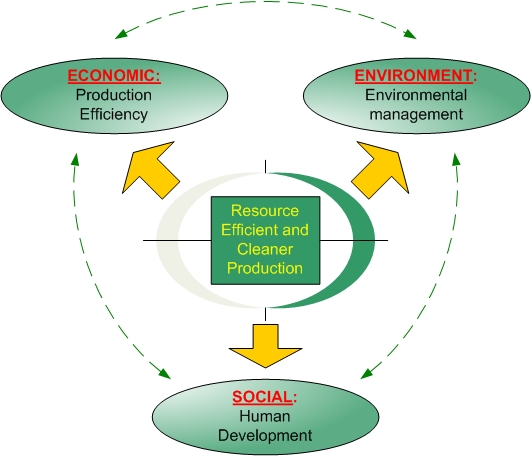


Cleaner Production (CP) - a concept developed by the United Nations Environment Programme (UNEP) in 1989. The key idea of cleaner production is the fact that industrial processes and functions can be improved in such a way as to not only reduce the amount of waste and reduce environmental pollution, but also to maintain and / or generate additional revenue for the company by saving resources. In addition, CP is always beneficial to all parties. Recognizing the fact that the efficient use of resources requires a clean production, and vice versa, UNIDO and UNEP are promoting resource efficient and cleaner production (RECP).
The purpose of the methods, techniques and systems of resource effecient and cleaner production (RECP) - to avoid contamination of the environment by reducing of use of resources and raw materials as possible. This means that a higher percentage of the feed is converted into valuable products, rather than to waste. To identify such opportunities requires a systematic and detailed analysis of manufacturing processes and production equipment - technical audit / assessment.
RECP contributes to:
So RECP based on CP and promote the application of preventive environmental strategy to processes, products and services in order to increase efficiency and reduce risks to humans and the environment. Application RECP contributes to sustainable development of the three components - both individually and collectively:
